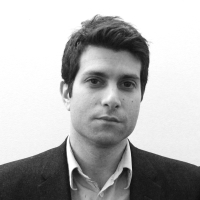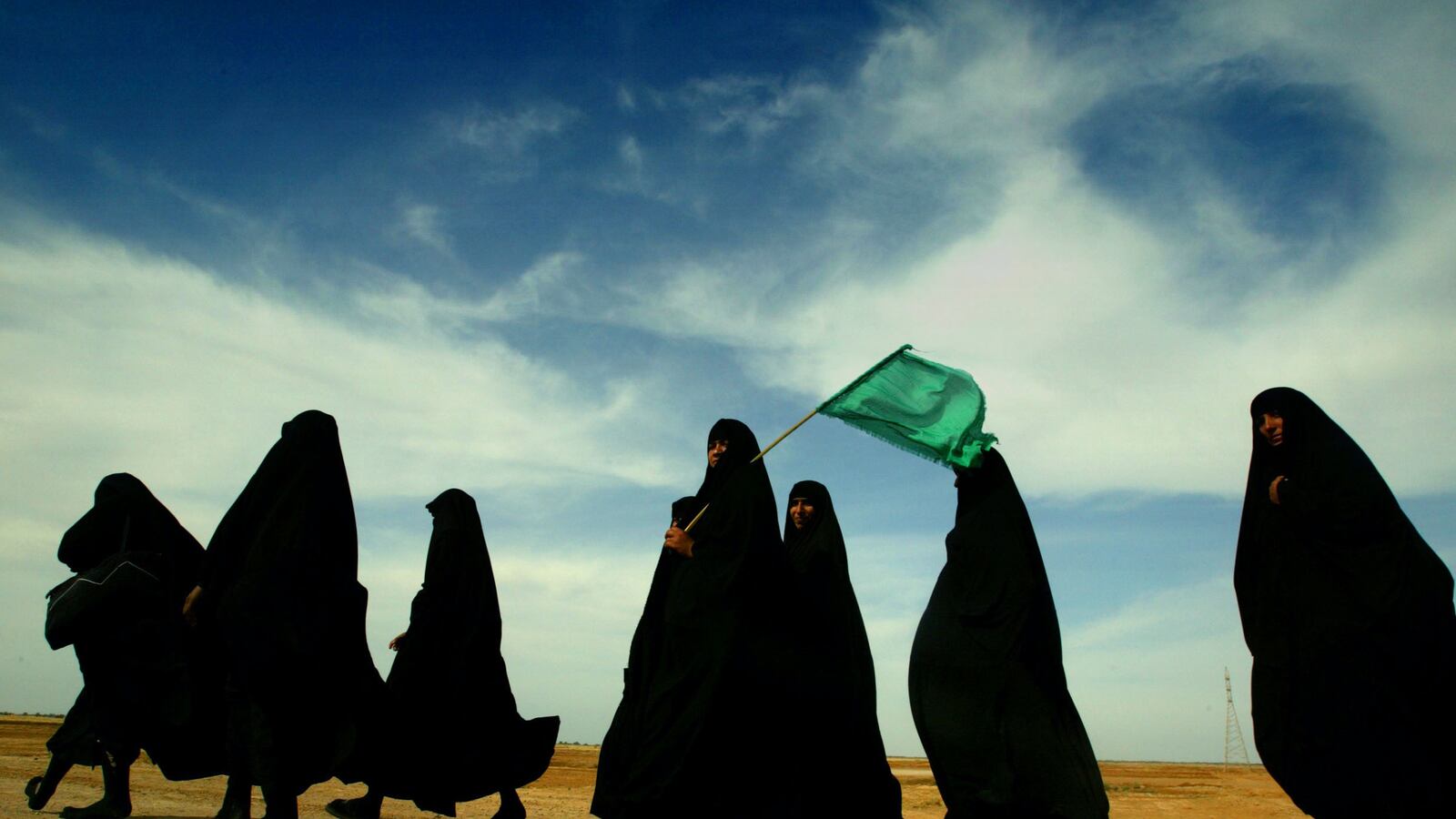BAGHDAD — A little girl toddles around shopping bags brimming with relief supplies that are heading for Iraqi refugees and into the arms of Dalal Jumaa, who heads this office of the Organization of Women’s Freedom in Iraq. Jumaa hugs the little girl and lets her go, then turns to me. “Today I am very scared,” she says in a low voice. “This morning they called and said if you do not move from this house we will kill you.”
It was the police who phoned the organization Sunday morning, Jumaa said. They told her they had heard she harbored gay men and runaway girls. But the threat, which the police were relaying, came from Asaib Ahl al Haq, a powerful and notoriously brutal Shia militia in Baghdad. “I cannot stop Asaib Ahl al Haq,” the policeman told her, “they received this information and will kill you if you don’t leave.”
The Organization, as everyone calls it, stood accused of pimping out the young women in its shelters, which Jumaa said is a lie commonly used to slander Iraqi groups advocating for women’s rights. She convinced the policeman of her innocence but the militia wouldn’t be waiting to hear her out. Asaib Ahl al Haq is the group believed to have slaughtered 29 women alleged to be prostitutes last week in the upscale neighborhood of Zayouna.
Advocating for women’s rights has never been safe work in Iraq but as the war empowers radical religious groups, it’s growing more dangerous. In an earlier conversation, Hanaa Edwar, who heads the Iraqi Al-Amal Association, another NGO in Baghdad that works on women’s rights issues, warned about the rise of the militias’ power. “The militias try to replace the rule of the law,” she said. “The armed groups are trying to replace the security forces. This is a horrible thing for the country.”
Under militia law prostitution can be grounds for mass murder. After the Zayouna massacre a warning on the door of the building where the women and two men were killed read: “This is the fate of any prostitution.”
Yet when I asked Jumaa if she would shutter the organization due to the threats, she raised her eyebrows and seemed a little bemused. “No, we will not close,” she said, “we have been threatened before.”
The organization has moved the young women and gay men it assists to undisclosed locations. “If the police or any militias visit,” Jumaa said, “they won’t find them.”
Haidar is one of the young gay men helped by the organization. He knows what threats like this can lead to. Two years ago, Haidar watched as his close friend was murdered by militia members who suspected he was gay.
“They called him Saif the Bride because people stared at him like a beautiful woman,” Haidar said. In 2012 Haidar and Saif went to Baghdad’s Lebanon Street to buy clothing. While Haidar shopped he saw a crowd gather in the street and went out to look. “Four men in black clothing put him on the ground. They called him gay and a son of a bitch, then they smashed his head with stones.” After watching them kill his friend, Haidar escaped, fearing that they would turn on him next.
Saif was only one victim in a spate of killings in 2012 carried out by militias against Iraq’s gay community and young men considered “emo.”
Haidar said it was Asaib Ahl al Haq that killed his friend Saif and that shortly after the murder his own name was added to their list of targets. The Organization now hides him and provides him with a stipend for his work.
At a park near the still vibrant heart of Baghdad’s literary and intellectual communities, Haidar relaxes with a group of communists who know that he is gay but don’t care. Those in the small group are some of the only people who know his secret.
“I always have to hide,” said Haidar. “It feels like I live in a prison.”
Haidar said he could never love openly and that he did not have a boyfriend. Then he laughed and made a “who knows” face as he nodded toward one of the men discussing how to bring Marxism to power in Iraq. “Yes, he is my boyfriend. Not all the time, but I love him.”
In addition to helping gay youth like Haidar, the organization takes in women who have been victims of sexual and physical abuse by their husbands or families. Some women come to the organization to escape the threat of honor killings. A statement on the organization’s website reads, “Women are the victims of violence and backward religious traditions in Iraq, and are in desperate need of shelter and protection from random acts of aggression.”
“Since the Organization was established in 2003 we have helped about 200 girls,” Jumaa said. “We give them shelter and help them to find jobs and get married.”
The ISIS-led war in Iraq’s north has led to a flood of internally displaced refugees and added to the Organization’s mission. Jumaa sits on the floor as she speaks, surrounded by those bags full of supplies for refugees. She opens them to show diapers, baby food, hygiene products, and clothing.
Then an assistant holds out the photocopied passport of a young Iraqi girl and a second piece of paper, an official form filled out in Arabic; the young girl’s death certificate. “She was 13 years old last month. She died escaping from ISIS in Mosul,” Jumaa said. “After she died she stayed in the arms of her father three days.”
The father now lives with the surviving members of his family in a house the organization rents in Baghdad’s Sadr City.
There is no official count of deaths among Iraq’s new refugees, but Jumaa said she knows of 13 people who have died fleeing Iraq’s northern and western provinces.
As the Organization tries to help the refugees its core mission, protecting women, is under greater threat.
The little girl who had wandered into the room earlier appeared at the doorway again and fell into Jumaa’s lap.
“Iraqi society is collapsing,” Jumaa said. She blamed everyone: ISIS, the Shia militias and Prime Minister Nouri al Maliki for the nation’s ruin. “But the worst victims are women,” she said. “The fate of women gets worse every day now.”
And the Organization’s own imperiled fate? The threats against it? “This is not finished,” Jumaa said, “they are chasing us all the time. They will find us again and then we will move again.”
Editor's Note: Some details of this story have been changed to protect the people and organizations described from reprisals.






